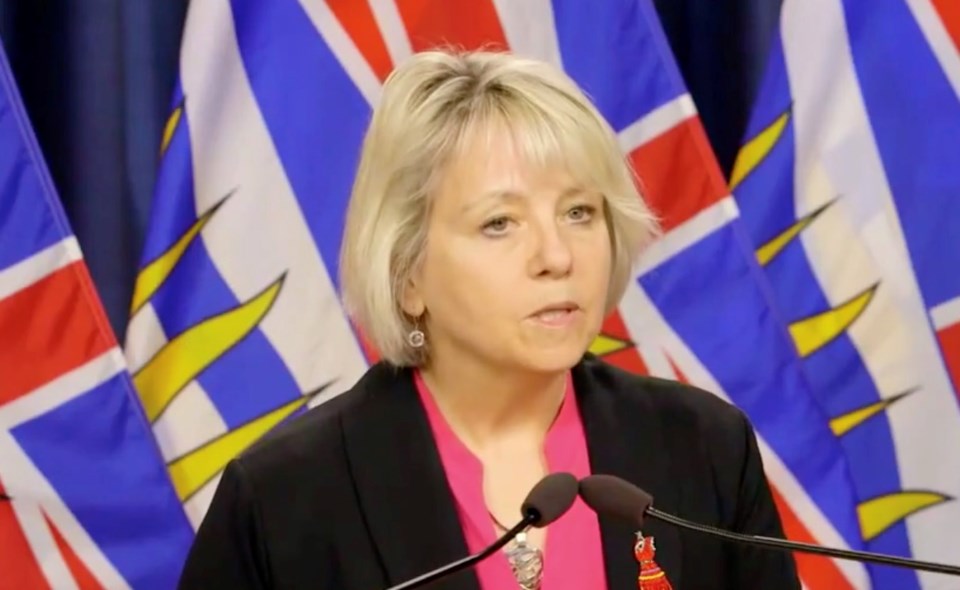Footage of a B.C. Supreme Court COVID class-action certification process is now available online.
After days of discussion, lawyers presented Justice David Crerar on Dec. 16 with a solution to issues that had hampered getting the footage online. Crerar agreed to the solution.
"Make it so," he said.
The lawsuit filed by the plaintiff Canadian Society for the Advancement of Science in Public Policy, led by Kipling Warner, seeks to challenge and obtain compensation for various measures, mandates and restrictions imposed in response to the pandemic.
Provincial health officer Dr. Bonnie Henry is named a defendant in the lawsuit.
Since the World Health Organization declared the COVID-19 outbreak a pandemic in March 2020, Henry issued orders designed to reduce the virus' spread in B.C., including requiring proof of vaccination to enter several businesses like restaurants. The so-called "vaccine passport" was in place in B.C. from September 2021 to April 2022.
Crerar is hearing arguments on an application for class-action certification. He is listening to applications of various kinds as well as evidence to determine if a class action is a suitable choice for the case, which can involve many people but is represented by what is known as a representative claimant.
As of Dec. 16, the judge has heard five days of submissions.
On Dec. 12, the plaintiff's lawyer Polina Furtula said the challenge revolves around whether or not the pandemic warranted having an emergency declared. She said the provincial legislative conditions for an emergency declaration were not met.
She called the resulting response "disproportionate."
And that, she said, requires denunciation.
What the plaintiffs want, according to Furtula, is a declaration that the government's actions were wrong. Her clients seek both vindication and deterrence for the government from doing similar things in future.
All of that can now be seen in the footage online. Readers need to be aware that they can only watch the footage on that site and that reposting or copying it could violate the judge's order and result in criminal consequences.
The website carries a warning.
"This is a recording of judicial proceedings which may not be further broadcast, rebroadcast, transmitted, reproduced, communicated to the public by telecommunication, or otherwise made available in whole or in part in any form or by any means, electronic or otherwise, or stored in whole or in part in any information storage and retrieval system, without the prior written authorization of the Supreme Court of British Columbia," the warning said.
"Any unauthorized use of this recording in breach of the order of the Supreme Court of British Columbia shall expose the person doing so to legal proceedings for contempt of court," the warning said.
The footage is available on Vimeo.
The very fact of a case being filmed is a rarity in B.C.'s courts.
In a decision released Dec. 1, Crerar ruled the public would benefit by being able to view proceedings.
The provincial government argued that inflammatory and violent comments made on the Internet, that when associated with the broadcast, could demean the court and risk violence.
Crerar ruled that would happen regardless of whether the hearings were broadcast.
"The Internet is already a cesspit of misinformed and, at times, deranged statements about almost every topic, including our courts. Such poison exists regardless of whether court proceedings are broadcast," he ruled.
Some parts of the footage will not be clear to viewers Images from lawyers' computer screens, which could be privileged information, will be pixelated, as will the faces of the court registrars sitting in front of the judge.
— with files from Colin Dacre



.jpg;w=120;h=80;mode=crop)